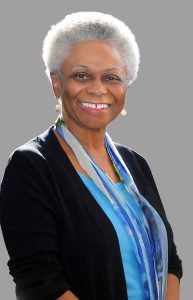
As you have hopefully seen, NIH is focused on identifying and addressing challenges and threats to equity across systems and populations. This is demonstrated by the National Institute on Minority Health and Health Disparities and numerous NIH offices focused on diversity, equity, inclusion, and accessibility (DEIA) (Office of Research on Women’s Health; Tribal Health Research Office; Sexual & Gender Minority Research Office, and the Office of Equity, Diversity and Inclusion [EDI]), including the establishment of the Chief Officer for Scientific Workforce Diversity (COSWD) in 2014. To further enhance our focus in this area, we are developing an NIH-wide strategic plan for DEIA. Managed by the Division of Program Coordination, Planning, and Strategic Initiatives in the Office of the NIH Director, my office is privileged to co-lead the effort with our colleagues in EDI and the Office of Human Resources. The plan will bring together input from all NIH Institutes, Centers, and Offices, as well as the NIH UNITE Initiative. It will serve as a blueprint for current and future activities in the broad DEIA space. An RFI seeking input into the structure of the NIH-wide Strategic Plan for DEIA is forthcoming shortly.
In the interim, I am very pleased to announce that my office has, over the last twelve months, worked on updating our own strategic plan focusing on our core mission, the science of scientific workforce diversity. We welcome your input as we lead and shape the next stage of this critical work at the NIH and across the United States.
As we recently blogged, the new strategic plan will guide the COSWD’s mission over the next five years to be NIH’s thought leader in the science of scientific workforce diversity, using evidence-based approaches to catalyze cultures of inclusive excellence. As part of this process, my office recently released a Request for Information (RFI) to solicit feedback on the Draft COSWD Strategic Plan for Fiscal Years (FYs) 2022-2026. We invite members of the biomedical research enterprise and the interested public to read the Draft COSWD Strategic Plan and RFI response instructions and submit comments by February 10, 2022.
My team developed the Draft COSWD Strategic Plan through internal and external priority assessments and stakeholder insights. The plan was also informed by the NIH-Wide Strategic Plan for FYs 2021-2025, which sets the agency’s course for advancing scientific discoveries and human health. To learn more about the Draft COSWD Strategic Plan’s development, visit the COSWD Strategic Plan section of our website.
The Draft COSWD Strategic Plan describes the COSWD’s three goals—to build, disseminate, and act on the evidence to enhance diversity, equity, inclusion, and accessibility (DEIA) in the scientific workforce—each with corresponding objectives and tactics. We anticipate releasing the final strategic plan in March 2022.
My office will consider the input we receive on the Draft COSWD Strategic Plan to create a unified vision to advance the science of scientific workforce diversity. Perspectives on the following topics as they relate to the Draft COSWD Strategic Plan will be beneficial:
- The three key goals—build, disseminate, and act on the evidence to advance scientific workforce diversity—including benefits, challenges, or any alternative or additional goals to consider.
- Objectives to support each of the three goals, including benefits, challenges, or any additional objectives for consideration.
- Cross-cutting strategies—collaborations, accountability, and evaluation—to leverage to pursue the goals, including benefits, challenges, or alternative or additional strategies for consideration.
- General comments, including those that help inform how the COSWD team may direct efforts to achieve its mission over the next five years.
We welcome comments and suggestions from scientists and scientific leaders; other scientific professionals; DEIA researchers and practitioners at universities, scientific or biomedical organizations, and other research institutions; professional scientific associations or societies; and other interested groups.
You will help us chart a course for the COSWD’s future by responding to our RFI. I appreciate and look forward to your insights, which will help my office capitalize on its strengths as an evidence-based thought leader and broaden its impact on the NIH workforce and scientific community.



0 Comments